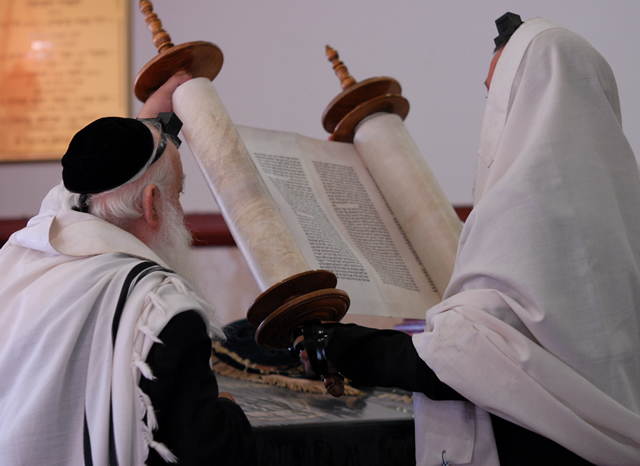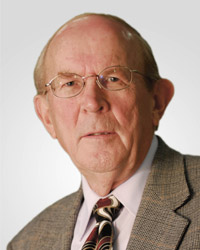
ISRAEL - Politics Out of Synagogues
It was a typical Friday evening at a synagogue in Herzliya, as worshipers gathered to usher in Shabbat. The atmosphere was one of quiet reflection, with prayers for peace and the safe return of hostages being held by Hamas woven into the sacred services. But that calm was soon disrupted.
Three women entered, distributing flyers. They featured images of the hostages and a depiction of Likud MK Yuli Edelstein, who regularly prays at the synagogue, as a Prisoner of Zion. Their message: Urgent action was needed from the Israeli government to secure the hostages’ release. Tensions flared as the women were arrested by the police for what was described as distributing political materials in a place of worship.
Synagogues are meant to be sanctuaries of prayer and reflection, where communities gather to seek spiritual guidance. Many already include prayers for the hostages’ safe return, particularly on Shabbat. Introducing political activism into these sacred spaces risks undermining their primary purpose.
It is crucial to maintain the sanctity of these spaces, ensuring they remain havens for spiritual devotion rather than battlegrounds for political causes.
Religious communities play a vital role in supporting social justice, but that advocacy must be channeled through proper venues. Synagogues can contribute without becoming platforms for political protest. This balance must be upheld to preserve their sanctity.
The hostage crisis is urgent, and public calls for action are valid. However, synagogues should remain spaces of prayer and unity, not arenas for political confrontation. By advocating for justice through appropriate channels while preserving the sanctity of religious spaces, Israelis can continue to honor their traditions and push for necessary change.
-www.jpost.com, 15 September 2024
Arno's Commentary
In the midst of the turmoil of war, there is one place of refugee: the place where the Bible is being read and prayed. To misuse that as a political platform, regardless of the importance, is objectionable.
The Jews survived and kept their identity in the Diaspora with the Word of God—the reading of the Bible. Prayer meetings in synagogues in olden days concluded with the words, “Next year in Jerusalem.”
When reading the New Testament, we notice that the early Christians, the 12 apostles, and the Lord Jesus Christ Himself refused political activism. “Render to Caesar the things that are Caesar’s, and to God the things that are God’s” (Mark 12:17). Jesus never lifted a finger against the prevailing occupier under the leadership of the Caesar of Rome.
Jesus’ eternal, valid instruction should often be read: “If ye were of the world, the world would love his own: but because ye are not of the world, but I have chosen you out of the world, therefore the world hateth you” (John 15:19). A clear distinction is made between the things of the world, “ye are not of the world,” and the separation, “I have chosen you out of this world.”
The Church has come a long way away from that definition. As a matter of fact, the Church at large has become more integrated with the world than the Church was during its beginning in Jerusalem.
Churches and ministries such as Midnight Call benefit from tax-exempt status, but are subject to the laws of the land. When a church or organization becomes politically active, they are subject to consequences according to the law of the government.
It’s unfortunate that many Christian publications reveal a strong political bent. And that’s not to the betterment of the nation or the church, but the degrading of the church.
One publication proudly proclaims on their front page, “Can God bless our country once again?” Our country, or for that matter any country, is not a person and is subject to the god of this world, regardless of proclaiming the opposite.
Here in the USA, the slogan, “In God we trust” is deeply engrained in the minds of all. But can such a slogan really be true? The answer is no. Why? Because of the word “we.” The God of the Bible is not a collective God for the people, but an individual God.
He identifies Himself not as the God of Abraham, Isaac, and Jacob, but very specifically: “And God said moreover unto Moses, Thus shalt thou say unto the children of Israel, the LORD God of your fathers, the God of Abraham, the God of Isaac, and the God of Jacob, hath sent me unto you: this is my name for ever, and this is my memorial unto all generations” (Exodus 3:15).
After dedicating the temple in Jerusalem, God answers Solomon’s prayer: “If my people, which are called by my name, shall humble themselves, and pray, and seek my face, and turn from their wicked ways; then will I hear from heaven, and will forgive their sin, and will heal their land” (2 Chronicles 7:14). It’s strictly addressed to the Jewish people in the land of Israel. However, we may apply it spiritually for the Church, for my life, for my family, but not literally to a geopolitical identity.
Prophecy predicts that Israel will humble themselves, seek the face of God, and God will forgive their sin and will heal their land.
The distinction between the geopolitical world and the spiritual reality the Bible speaks of needs to be studied carefully.



